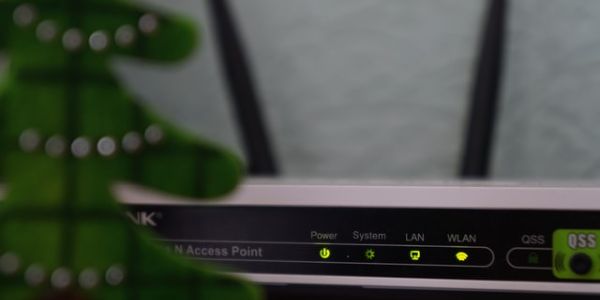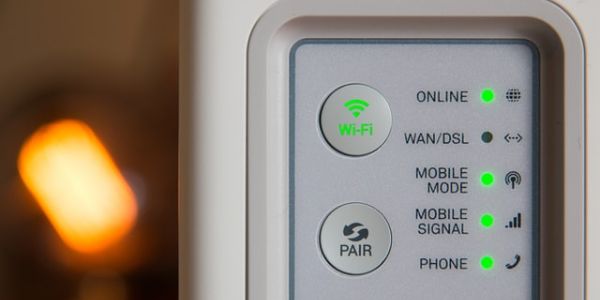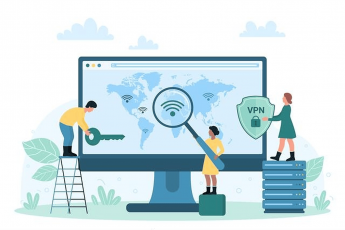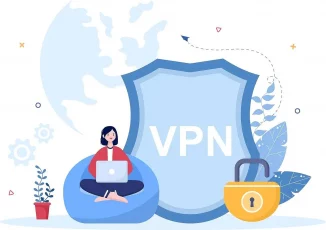Slow internet is one of the frustrations almost everyone faces today. Unfortunately, a bad VPN can make that situation even worse.
While you may want your internet activity to be more private and secure, you probably don’t wanna see a massive drop in speed.
So what can you do? Luckily for you, there are several things you can do to make VPN faster.
While there’s a whole bunch of factors that lead to a slower VPN connection, there’s also a bunch of techniques you can use to make your VPN fast. But before we get to them, let’s cover some essential stuff you need to know.
Why does VPN slow down my internet speed?

There are a couple of critical reasons you are experiencing a VPN slowdown that could also affect your internet speed.
The question of why VPN slows down at home internet is not addressed directly. But yes, there are potential variables that affect slower internet performance.
Bad server location
The first reason you are experiencing slow VPN speed is that you might have connected to a server that’s too far away. If you’re in the UK and connected to a server in New Zealand, that means your data has a much greater distance of travel. More distance equals slower speed.
Too many users or overloaded server
Another reason is that the VPN server you’re connecting to has too many users connected and hence a high server load. In short, it can’t dedicate enough resources to you to keep your speed high.
ISP data capping or wrong protocol
Your ISP being capped at speeds below the maximum a VPN can provide might be the answer to your question, “why does VPN slow down my internet speed?” Or, you might be using a protocol that slows down your internet speed.
Antivirus and other unnecessary background applications getting in the way
Lastly, there’s your antivirus and other background applications that could be stifling your VPN connection.
So if those are the causes, how do you speed-up VPN? Let’s find out.
How to increase your VPN speed?

As noted earlier, there are many legitimate ways with which you can make your VPN fast. And the best thing, they are super easy.
A VPN encrypts your internet traffic and substitutes your IP address to protect your data and guarantee anonymity. Often a lower link speed may imply this.
Sometimes it can mean a lower connection speed. Here are 13 tips to improve and increase your VPN speed.
1. Change protocol settings
Most VPN protocols are open VPN over UDP or TCP. And some networks place restrictions on the speed of some protocols. By experimenting, you’ll find the fastest VPN protocol for you. One VPN application’s latest protocol is based on wired guard, and there are lightning-fast speeds compared to other VPNs.
Go to your settings and try switching to a different internet protocol to improve VPN speed. Choose the UDP option for a faster yet unstable connection, or go for the TCP option if you prefer a safer but slower connection.
2. Try WireGuard
There is the WireGuard protocol that is up-and-coming. This feature is initially designed for Linux and strives to be as stable and considerably faster than both IPSec and OpenVPN.
Although WireGuard is not commonly used yet, different VPN providers have started deploying this protocol to improve VPN speed.
We tested it, and WireGuard increased both the output of the upload and download speed. If your VPN service provider offers WireGuard protocol, your top bet for improved speeds is hands-down.
3. Change server to a location near you
To make your VPN fast, you need a server near your exact place as necessary. If you are in the UK, rather than New Zealand, shoot for the UK or Europe. You may also do this on databases that are uncongested.
It might slow down your internet speed if you select a geographically remote server from your actual position. Linking to a nearby server can help to boost your VPN speed and lower latency.
4. Check your internet speed
If your connection is slow to begin with, a VPN isn’t the bad guy here. Run a quick test and check your internet speed with and without a VPN to know whether it is indeed responsible for the slowdown.
Also, if you’re going to test your internet and improve VPN speed, you’re going to need a reliable speed test source. There are a lot of them out there. Some are better than others. Speedtest.net is one service that we can recommend here.
5. Used a wired connection
Wi-Fi is good. It helps you connect all these devices around your house really conveniently.
But if you can use Ethernet on your most used devices: your laptop, your Smart TV, that gaming console — your Ethernet connection will help speed up VPN and those devices considerably. Of course, the phone is a limitation here as you can’t use Ethernet on mobile.
WiFi technology is getting a lot better at speeding up than Ethernet, but it still can’t quite compare. So if you can plug it in, do it.
Using a LAN cable to connect directly from your router or modem is recommended if you are using a device with an Ethernet port. A wired link provides direct and uninterrupted access to the internet for your computer. It excludes from the equation all WiFi intrusion concerns and takes you a step closer to discovering the source of your VPN delay.
Evaluate the WiFi and double-check if you’re utilizing the most suitable settings if you can’t use a wired connection. Changing your place (for example, going to the other end of the couch) can help too.
BONUS TIP: Check if you placed your router in the right spot

Here’s the thing: If you’ve got a giant house, you don’t put your router in the corner. You put it in the middle. Make sure that it is close to the action.
If it’s out in some corner of the house, it’s not going to reach the other side of the house. If it’s in the middle of a bunch of other electronic equipment, maybe there’s interference going on, and it might not be able to get out a clear signal. So make sure that your router is in the right spot.
6. Upgrade your ISP and VPN
Simply put, if your internet provider isn’t fast enough, then your VPN speed will never be. Take a look at what speed your ISP is providing you with. And if it is not enough, you might just have the wrong provider and consider an upgrade to a fast VPN.
In some areas, you only get one or two. But most places will have a bit of competition going on, so take advantage of that. You can look for a zipcode checker tool. Then you pick one that you like and put in your zip code. It will tell you exactly which providers and which plans are available in your area so you can make sure that you are getting the best deal now.
Likewise, your VPN plan might be limiting your speeds, and the solution might be as simple as paying for the advanced plan for a new VPN provider.
Mostly, the server from your VPN service provider is pre-configured to offer their clients the maximum performance. However, in certain situations, existing software or configurations on your computer can conflict with the normal “one-size-fits-all configuration” of that software.
There are always occasions where trying a new set of VPN apps will boost outcomes and have better internet speeds. Yet, before starting down this route, do notice that some more specialized technological know-how will be needed.
7. Subscribe to at least two VPNs for backups
Try subscribing to a number of different VPN services at once, and we often recommend people get at least two to have a backup.
One explanation is that one VPN provider may provide better services than others. They could be overloading a host, too much traffic, or restricting bandwidth and throttle speeds on certain VPNs.
Switching to another VPN in such situations would make it clear whether the trouble is your VPN and not your internet link.
8. Don’t set up VPN on your router
The reason for this is simple.
Your router is unlikely to be able to match the speeds of your device itself. So when in doubt, select your connection on your device and not your router.
BONUS TIP: Upgrade your router, too, if you have time

Have you had the same router since 2004? Or maybe since 2017? It’s 2020 now, and the technology used in your old router might already suck.
Just go to your router, check the specs on it and find out what its capacity is. Not every router can carry the megabit per second load that your ISP and VPN are ready to send your way.
9. Check system requirements
The cause of a slow VPN connection is sometimes nearer than you would know. That’s why it’s also better to check if any apps may take up excessive amounts of bandwidth on your device.
Suppose you left your BitTorrent client open in the background while torrenting. And twenty-seven other clients are currently being seeded, the odds are that it causes your slowdown.
You do not need to have 2000 applications and browser tabs open all at once. They don’t deserve all your attention. It’s challenging to think that you might come back to these apps later.
But sometimes, you just have to declare an app bankruptcy and get rid of them all now.
Closing any programs or apps that you don’t need now is a good idea. That could free up bandwidth that is unnecessarily used on your VPN connection. Even if the applications don’t use the internet, it will still free up system resources by closing them, which will certainly not hurt.
10. Enable split tunneling
The conditions that you impose on your VPN link in certain circumstances are more significant than your connection can accommodate, pure and basic.
Several VPN providers offer another alternative if you have got multiple bandwidth-intensive programs running at once and can’t (or don’t want to) shut down any of them to fix your performance problems. They name it to break tunneling.
You may decide which traffic travels through the VPN and goes out unsecured through the standard internet network through Split Tunneling.
If split tunneling is allowed by your VPN provider, abide by their guidelines to get it going correctly. All would come down to deciding which traffic to add and which to exclude from the VPN tunnel, no matter how they enforce this function.
You will also be able to use inverse split tunneling in certain situations. This approach helps you decide only the traffic that the VPN wants to use instead of removing a wide range of traffic or programs from it.
If you utilize a VPN to avoid area constraints or overcome content blocks placed in place by your nation or ISP, inverse split tunneling is an excellent choice.
12. Temporarily disable your antivirus software
The firewall or antivirus software filters and scans outgoing packets and could slow down VPN traffic. To determine if the security software is the cause of the performance problem, try to disable your safety software or antivirus applications while using your VPN.
13. Reboot your devices
When you have exhausted all your other options, your last resort is to shut down the program and completely reboot your computer, phone, or tablet.
It does make a difference sometimes, and that does it. Have we ever had that thing where your computer is kind of acting up and applications aren’t working quite right, and all you had to do is reset it?
Well, that’s kind of the same thing with your devices.
The software needs a reset every now and then to make sure that it’s working correctly. So with a lot of routers, all you do is unplug it and plug it back in. You can make the IT crowd with that one.
An old-fashioned rebooting could also fix things if your router or modem is slower because of memory leaks. Also, note that it is normally relatively slow to link to a router than to connect directly from your laptop to a VPN.
Some essential FAQs

Can VPN increase my internet speed?
It’s not uncommon for people to get frustrated with their internet speeds when connected to a VPN server. But then, your internet use would not be substantially improved by a VPN, although this relies on the service and protocol used. Thanks to the encryption method.
Interestingly, in some cases, a VPN can boost internet speed by about 5 or 10 percent.
When your ISP deliberately curb the internet speed during certain hours or certain operations, VPNs can help you prevent bandwidth throttling. That way, they’re not going to be able to see what you are doing and restrict your connection.
But again, most of the time, a VPN will slow your internet speed a bit — because of the encryption process involved. Better yet, premium VPN providers still don’t dramatically slow down the online pace.
How to increase internet speed using VPN?
Using a VPN server that is near to you as described above will improve internet speeds. Which creates fewer networks to travel around and helps prevent bandwidth limits.
Using VPN alongside modifying protocols will even help you boost the internet speed. If you modify a protocol with weaker encryption requirements but have a quicker rate, your data would be less protected.
What is the minimum internet speed for VPN?
The pace you need varies on your online tasks and how many users will use the service. What do you most often do online? You’ll also need a quick internet link at first if you do a bunch of visual stuff that needs more bandwidth or have several internet users residing in your household.
Video streaming and massive updates take up much of the bandwidth, although less of it is needed for online gaming. The least velocity is needed for casual web surfing, email contact, and social networking.
What is decent internet speed, though? For most consumers, about 25-30 Mbps is considered a decent home internet speed.
For simple internet practices, such as web surfing, video and audio playback, copying of media, and online gaming, that should be enough. Of necessity, you’ll need a faster pace if you try to do all this on even more than a handful of computers concurrently. You can even see the average bandwidth you need for varied online activities in the table below:
| Speed Requirement | Activities |
| 1 to 5 Mbps | Browsing, email, Google search, music, and standard definition video streaming on one device |
| 5 to 8 Mbps | High definition (HD) video streaming on one device |
| 8 to 40 Mbps | Video calling and online gaming on one device |
| 40 to 100 Mbps | Online gaming and watching HD video on multiple devices, downloading large files |
| 100 to 500 Mbps | Watching ultra-HD videos on multiple devices |
The average internet connection speed varies from country to country. Although countries such as Taiwan or Singapore hit an average speed of up to 70-80 Mbps, the median for the majority of North America and Europe is 20-35 Mbps.
The bandwidth can be as limited as 1 to 2 Mbps in countries with less-developed internet technology. So you can see that internet coverage across the globe is also pretty unequal. Hence, the minimum internet speed needed for your VPN depends on your location.
Final thoughts
Generally, there are fewer risks that you will experience a high-speed loss if you are using a reputable VPN provider. However, due to the reasons mentioned above, you might often face speed problems.
To mitigate the possibilities of speed anomalies, going only with VPNs such as ExpressVPN and NordVPN that are tested to the fastest ones can make a good starting point.
Consequently, some tinkering and some detective work can help a lot to make your VPN faster. The tricks provided above should help make your VPN perform at its best. Try them and see which one among these works best for you.
If you have any other tips for speeding-up VPN connection speeds, let us, and other readers like you, know in the comment section below.






